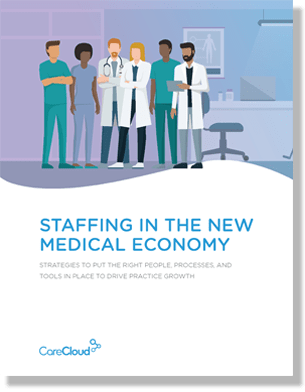As much as this topic doesn’t serve this kind of pop-cultural oversimplification, the fact is entrepreneurship is in style – a new ‘punk rock’ of sorts. The advantage of having so many people jump into the mix, however, is a constant hunger for innovation and a contrast between effective and ineffective entrepreneurs.
Being a doctor can’t go out of style by default. But when an occupation gets the opportunity to rest on its laurels for hundreds of years, it forgets to innovate. With all the entrepreneurs trying to improve the healthcare industry, especially in the tech space, doctors are increasingly enabled by innovation.
And these entrepreneurs can help doctors in a few other ways, as well.
Vision
The kind of vision we associate with successful entrepreneurs goes beyond the 20/20 of keen business acumen. Vision means you see beyond the present because you’re dissatisfied with norms and the way business is conducted.
Likewise, a doctor should never feel too content about the way the healthcare industry is run. Statistics verify this – a recent Sermo poll found that 37 percent of all doctors are unhappy about at least one aspect of their profession as physicians and expressed serious concerns about the current state of healthcare.
If you’re a doctor and you’re dissatisfied with the state of the healthcare industry, do something about it. Participate in research studies for telehealth companies, let EHR developers mirror you and promote the use of helpful technologies for your patients. Are you against the ACA or unhappy with private insurance companies? Activism isn’t out of the question, either.
Adaptability
As annoying and abused as the word ‘pivot’ has become in the start-up realm, there’s a basic truth to it – if the market changes or obstacles present themselves, you restructure your game plan.
Adaptly founder Nikhil Sethi knows a thing or two about being flexible. The 23-year-old entrepreneur wanted to create an ad-networks analytics tool until research suggested the demand was much higher for a system to place and manage campaigns. Thus, Adaptly became a system for running social media campaigns with integrated analytics data.
It’s important for doctors to keep an ear to the ground, learning how the industry moves and how legislative, market and technological changes affect the medical profession. For instance, doctors need to become acquainted with accountable care organizations post-ACA ruling, and Meaningful Use incentives provide a strong incentive to implement an EHR ahead of the federal deadline.
Or you may disagree with these changes completely, in which case you can lobby locally and at the state level, or organize with other physicians and make your voices heard. But being familiar with industry happenings guarantees you’ll adapt to a rapidly changing landscape.
Persistence and Execution
Innovating and generating ideas is an important part of the entrepreneur’s job functions. But as anyone starting a business knows, you need to build your ideas out in order to gain some sort of traction. They don’t play themselves out on their own.
Through organization, persistence, a combined short- and long-term strategy, and execution, entrepreneurs succeed in becoming their own kings, so to speak. Sometimes, accomplishing your goal of getting a point across is as simple as just pushing harder.
So, if you’re a doctor and your goal is to improve patient care, just do it – either implement an original plan within your practice or discuss it publicly and try to gain supporters.
Or if you’re angry with your outsourced medical billing company, take matters into your own hands – implement an RCM system at your practice, train your staff and execute your plan. Don’t be afraid to take the reins every now and then.
Thanks for always sticking by PYP’s side. Feel free to leave a comment about this article, or sign up for daily updates!




